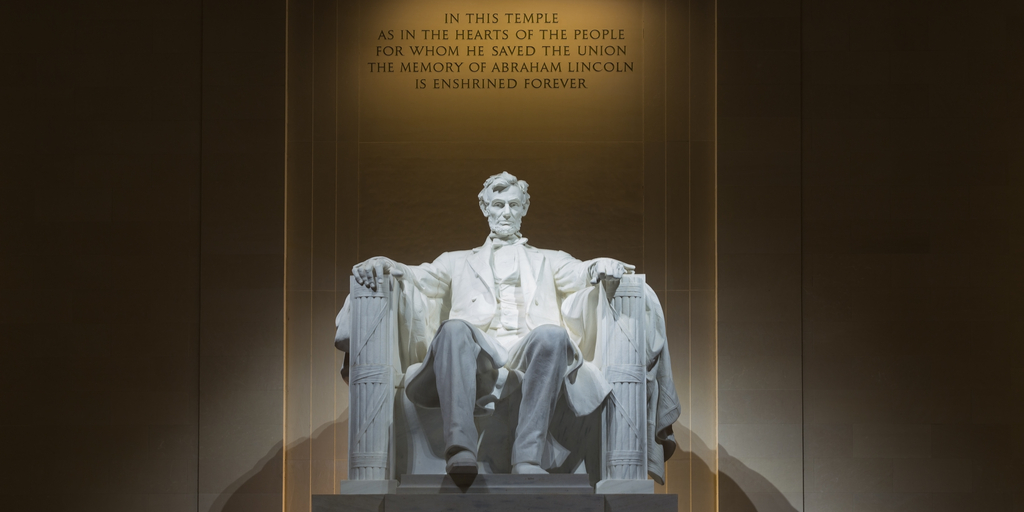Why Did Harry Jaffa Change His Mind?
Harry V. Jaffa published Crisis of the House Divided in 1959. The book established him as the foremost interpreter of the American political tradition, because it established him as the foremost interpreter of Lincoln, our foremost politician. He published A New Birth of Freedom in 2000, to much less acclaim. Both books are about Lincoln and the struggle over slavery. One striking difference between them is their different accounts of the American founding. Crisis presented the founding as dominated by a modern thoroughly self-interested rationality, whose resulting morality was nothing beyond what calculating self-interest would advise. Jefferson was the spokesman for this morality, which did not provide a solid basis for opposing slavery. Lincoln overcame this morality, as well as Jefferson and slavery. He gave the nation a new birth of freedom by creatively interpreting the claim that all men are created equal as a noble, transcendent idea of justice.
New Birth presented the founding as already containing this transcendent morality, expressed especially in Jefferson’s insistence on a majority rule guided by the “sacred principle” that that rule “to be rightful must be reasonable; that the minority possess their equal rights, which equal law must protect, and to violate would be oppression.” This sacred principle, Jaffa now argued, was contained in the declaration of human equality that founded the country. Whereas Crisis presented Lincoln as overcoming Jefferson, New Birth presented Lincoln as Jefferson’s greatest student.
Edward Erler and Ken Masugi, both students of Jaffa’s, have put together The Rediscovery of America: Essays by Harry V. Jaffa on the New Birth of Politics, a collection of 10 of Jaffa’s later essays, to explain how Jaffa got from the account in Crisis to the account in New Birth. (Jaffa gave his own explanation in his last book Crisis of the Strauss Divided.) Using the language of their school, the editors explain that Jaffa wrote Crisis within the framework of the conflict between the ancients and the moderns, while he wrote New Birth based on a deeper understanding of the theological-political problem. Jaffa learned about these things from Leo Strauss. According to Masugi and Erler, “Jaffa realized that the distinction that Strauss drew between ancients and moderns was a distinction in the history of political philosophy, not a distinction within philosophy itself.” For Strauss, Erler and Masugi write, talk of “ancients and moderns served a largely rhetorical function.” Moving beyond this rhetorical distinction brought Jaffa to a “deeper understanding of political philosophy and its relation to politics and political life.”
The editors don’t explain what they mean by “a rhetorical function.” Normally, one might think of the rhetorical and the political going together, but in the editors’ account the terms seem opposed, since they argue that Jaffa went beyond the rhetorical to a deeper understanding of politics and philosophy. In any case, their explanation raises some questions. If the difference between ancients and moderns is largely rhetorical, then are we to conclude that Jaffa’s frequent defense of the founding based on that distinction is also largely rhetorical? If so, this might suggest that on the level of philosophy Jaffa agreed with critiques of the founding.
Jaffa’s dispute with Harvey Mansfield, which included the claim that Mansfield is a Machiavellian or a modern, is prominent in the collection. Is this dispute largely rhetorical? To say that something is largely rhetorical is not necessarily to say that it is false. Jaffa’s criticism of the founding in Crisis may have been true, then, if inadequate politically. Why was it inadequate and how did Jaffa overcome it?
One way Jaffa explains the change in his interpretation is to say that he came to see “the American Founding as the Best Regime” (the title of one of the essays in the collection). The founding is the best regime (in speech, Jaffa emphasizes), because
it provided for the coexistence of the claims of reason and revelation in all its forms, without requiring or permitting any political decisions concerning them. It refused to make unassisted human reason the arbiter of the claims of revelation, and it refused to make revelation the judge of the claims of reason.
This political coexistence was possible because the founders realized that reason and revelation agreed “upon the nature and role of morality in the good society.” The founders realized, as Jaffa put it, that both classical philosophy and biblical religion agreed “that man’s highest end transcends morality” or that “the human soul . . . participates in a reality that transcends all time and change.” It is worth noting that in this passage, critical to understanding Jaffa’s rediscovery of America, he relies on the contrast between ancients (classical philosophy) and moderns. It is also worth noting that when Jaffa speaks of biblical religion in this passage his characterization may be more true of the new than the old testament.
Jaffa claimed America was the best regime because for the first time in western civilization a political order did equal justice to the “two irrefutable and irreducible principles of human life,” reason and revelation. Another way to put this is to say that America is the best regime because it was the first to give freedom to human reason. Jaffa emphasized that the separation of church and state was possible because of an underlying agreement on moral principles grounded in the equality and natural rights or law of the Declaration of Independence, which mentions both self evident (i.e., unrevealed) truths and Providence. This agreement made civic friendship possible despite religious differences. In turn, this friendship made majority rule (self-government) compatible with minority rights. Citizens—civic friends—had some good in common, allowing majority rule in principle (in speech) to be to the advantage of the minority as well. As disestablishment allowed citizens from different religious traditions to be friends, so upon reconsideration did it allow Jaffa to find common ground between Jefferson and Lincoln. (That Straussians, even students of Jaffa, are unfriendly still to Jefferson may be indicated by the cover of the essay collection, which features the faces of Lincoln and Washington.)
This brief summary of part of the argument of one essay touches on a number of arguments and claims that the other essays in the book repeat and elaborate in different contexts. It does not at all suggest the scope or depth of Jaffa’s analysis, which moves from the ancient city and the Bible, through the Roman empire and the triumph of Christianity, to the Reformation, subsequent religious wars, and the founding of the United States. The summary also does not suggest what seems to be the explanation Jaffa gave for his change of mind. When he wrote Crisis, he was under the spell of his great books education acquired with Strauss but had not studied politics enough. Since Lincoln called on the moral authority of the founding, Jaffa realized he had to restore the founding to restore Lincoln. To restore the founding, he had to break the spell cast over him by Strauss’s interpretation of the moderns, or to see through the modern books to modern politics and begin there. Jaffa thus escaped the Strauss school, while others did not. This explains Jaffa’s criticisms of mere book learning and his remark to Mansfield that he (Mansfield) had to attend to political thought not just the history of philosophy.
Disenthralled, Jaffa could see anew what was always there in the founding, giving the title of the essay collection an ironic shadow. Yet, seeing anew, Jaffa saw more deeply than others had. From the viewpoint of eternity, of speech, we are not likely to get a better account of the significance of the revolution in human affairs wrought between 1776 and 1800. It parallels, and may even surpass, John Quincy Adams’ account, for example in his 1821 celebration of the Declaration of Independence. But what about the perspective of politics, the perspective of the deeds of men and not their words alone? Does this perspective shed light on the change in Jaffa’s interpretation?
Shortly after Jaffa published Crisis, a revolution began in how Americans understood themselves. The Civil Rights movement at first got all the attention, but it was merely the completion of the founding and Civil War. As such, it fit within the interpretation of Crisis. The problem was that Jaffa’s critique of the founding fit nicely with the emerging new left critique of America, which saw the country’s spirit as too selfish and materialistic. The real revolution, however, was in attitudes towards gender. The more radical part of the women’s movement soon began to question gender distinctions. This questioning was aided by and gave support to emerging arguments for the acceptance of homosexuality. Jaffa stoutly resisted such arguments, referring to homosexuals as sodomites. He did so, we may surmise, because if public opinion no longer held that gender differences were natural, then it could no longer hold that any distinctions were natural. This was a notion of equality antithetical to the Declaration’s, Jaffa argued. The moral revolution undermined the authority of both reason and revelation, eroding the ground of civic friendship. No way of life could be better by nature than any other. As the revolution unfolded, Leo Strauss died (1973) and Jaffa came to see that Strauss’s thinking was turning into a school. This meant that political philosophy, rediscovered by Strauss, might disappear again. To preserve both the country and political philosophy, Jaffa returned to the beginning, reinterpreting the founding to emphasize its Biblical but, he now argued, no less rational morality.
As Jaffa realized our case was new, he thought and acted anew. Throughout, his dominating purpose, exemplified in these essays, was to understand and to preserve the possibility of understanding in the conditions created by the founding.


